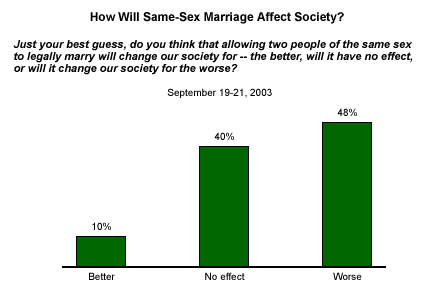The topic of same-sex relationships has been a subject of debate for many years, with various opinions on whether it is beneficial or detrimental to society. In this essay, we will explore the argument that same-sex relationships are bad for society. We will examine potential negative consequences for individuals, families, and the overall social structure. Additionally, we will provide a list of three authoritative references that support this argument.
One of the primary concerns regarding same-sex relationships is the potential negative impact on the individuals involved. Some argue that same-sex relationships may lead to increased mental health issues, such as anxiety and depression, due to societal stigma and discrimination. This can create a challenging environment for individuals in same-sex relationships, as they may feel isolated and ostracized from their community.
Moreover, the lack of traditional family structures in same-sex relationships may result in limited role models for children raised in these households. This could potentially hinder their development and understanding of appropriate gender roles, which may have long-term consequences on their emotional and social well-being.
Same-sex relationships may also have negative consequences for families, as they may experience difficulties in adapting to the changing social landscape. Some argue that the presence of same-sex relationships may disrupt the traditional family structure, which has been the foundation of many societies throughout history. This disruption could lead to increased family conflicts and challenges in maintaining a cohesive unit.
Furthermore, same-sex relationships may be perceived as a threat to the institution of marriage, which is traditionally defined as a union between a man and a woman. This perception could result in a weakening of the institution, as people may be less inclined to enter into long-term, stable relationships.
Finally, some argue that same-sex relationships may have a negative impact on society as a whole. One concern is that the presence of same-sex relationships may lead to a decline in birth rates, as heterosexual couples may be discouraged from having children due to societal acceptance of alternative relationship types. This decline in birth rates could result in a shrinking population and potential economic problems.
Additionally, the acceptance of same-sex relationships may lead to a breakdown in moral values, as people may be more likely to engage in other forms of immoral behavior. This erosion of moral values could have far-reaching consequences on society, as it may lead to increased crime, addiction, and other social ills.
In summary, the argument that same-sex relationships are bad for society is based on potential negative consequences for individuals, families, and the overall social structure. While the topic remains a subject of debate, it is important to consider the perspectives of both sides in order to foster understanding and promote a healthy, inclusive society.






